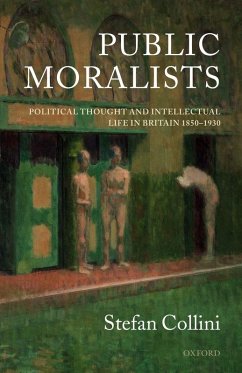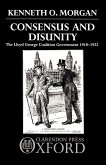The book assesses the impact of increasing academic specialization across a range of disciplines, and offers an illuminating analysis of the public voice of legal theorists like Maine and Dicey. Through a detailed study of J.S. Mill's posthumous reputation Dr Collini uncovers the process by which the genealogy of images of national cultural identity is established; and he concludes with a provocative exploration of the nationalist significance of what he calls 'the Whig interpretation of English literature'. "Public Moralists" is a subtle and illuminating study by a leading intellectual historian which will redirect debate about the distinctive development of modern English culture.
This imaginative and unusual book explores the moral sensibilities and cultural assumptions that were at the heart of political debate in Victorian and early twentieth-century Britain. It focuses on the role of intellectuals as public moralists and suggests ways in which their more formal political theory rested upon habits of response and evaluation that were deeply embedded in wider social attitudes and aesthetic judgments. Collini examines the characteristic idioms and strategies of argument employed in periodical and polemical writing, and reconstructs the sense of identity and of relation to an audience exhibited by social critics from John Stuart Mill and Matthew Arnold to J.M. Keynes and F.R. Leavis.
Hinweis: Dieser Artikel kann nur an eine deutsche Lieferadresse ausgeliefert werden.
This imaginative and unusual book explores the moral sensibilities and cultural assumptions that were at the heart of political debate in Victorian and early twentieth-century Britain. It focuses on the role of intellectuals as public moralists and suggests ways in which their more formal political theory rested upon habits of response and evaluation that were deeply embedded in wider social attitudes and aesthetic judgments. Collini examines the characteristic idioms and strategies of argument employed in periodical and polemical writing, and reconstructs the sense of identity and of relation to an audience exhibited by social critics from John Stuart Mill and Matthew Arnold to J.M. Keynes and F.R. Leavis.
Hinweis: Dieser Artikel kann nur an eine deutsche Lieferadresse ausgeliefert werden.








